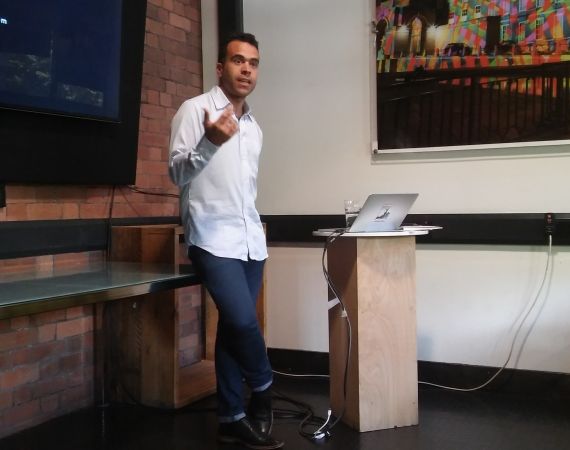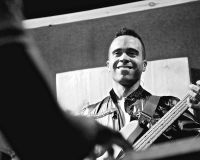Lunchtime talk write-up
Posted on Mon 22 May 2017
What Happens When Crucial News Competes with Cats?
Why do we seem to be making so many strange choices? For democracy to work, any population needs to be well informed, but are people really motivated by facts, and can we make information more enjoyable?

Speaker
What’s happening in the world, and why do we seem to be making so many strange choices? Information has widely been agreed to have a crucial role in how society works, and journalists have long held that the citizens of any democracy have a “right to know.” But what happens when this crucial information has to compete with other media that are more enjoyable, such as entertainment or pictures of cats?
Marcus Gilroy-Ware has spent the last 11 years researching how information is encountered online, and has developed new platform, Smartest, to make that process more user-friendly. In this talk he spoke of his journey to understand how people encounter new information online.
Five Things I Learned
1. In the 90s the Internet was often referred to as the ‘information super-highway’, however Marcus argued that it is now more of an ‘information lane’. Why has crucial information lost its central role in our internet use? Is it because we’re too busy looking at cat pictures? Or is it buried under tons of misinformation? Marcus’ curiosity for the Internet began at university with nights spent coding and reverse engineering web servers – the computers where websites are stored – to find out how they worked.
2. Marcus recalled how the events of September 11 hastened the burst of the .com bubble, leading many over-valued businesses known as .com companies to go bust. Not long after this, “Web 2.0” was born. This was the second generation of the World Wide Web, where the majority of the content would come from users rather than site owners. This important shift enabled people to collaborate and share information more independently, and exploded between 2003 and 2006.
3. Marcus was frustrated with the text centric platforms people were using such as Wordpress, Drupal or Joomla as he believes that they stifle the creative opportunities afforded by the web. The ideal content management system (CMS), he says, would allow people to do what they do well, such as creativity and self-expression while letting the computers take care of what they do well, structure, replication and distribution. Working with a partner Marcus started developing a new platform called Smartest that allows for much more flexibility. Smartest 2.0 will be launched to the public later this year.
4. Thinking about our relationship to news and information on the Internet, Marcus’ questioning and research led him to publish his first book - Filling the Void: Emotion Capitalism and Social Media - this month. The book discusses the relationship between the Internet, platforms such as Facebook and Instagram and our growing sense of anxiety. If we aren't looking for information what are we searching for, and why?
5. Marcus emphasised the social quality that news can have; social media is a platform that allows users to share news and information with their friends and/or followers, however this can also contribute to phenomena such as the echo chamber and the polarisation of political views. He discovered some surprising research, which revealed that when people are presented with numeric evidence that goes against their political stance or what they believed to be true, their beliefs became more entrenched. Technology won’t solve all issues surrounding people having access to true media; as the saying goes, you can bring a horse to numeric evidence but you can’t make it believe. Marcus is currently working at the studio to figure out the answers to some of these questions.
